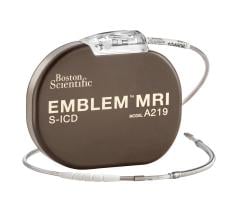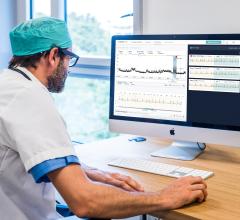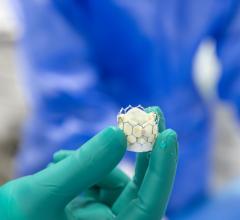September 3, 2015 — Sorin Group announced the start of patient enrollment in its TRIUMPH-CRT clinical trial in Europe.
The study, which will be conducted using Sorin Group’s Paradym CRT-D Tri-V (triple-site ventricular) device, is designed to investigate the benefits of individually optimized Tri-V pacing over standard biventricular pacing in patients with a non-left bundle branch block (LBBB) morphology. The endpoint will be assessed by measuring the left ventricle end-systolic volume (LVESV) by echocardiography at 12 months post-implant. The echocardiographic findings will be assessed by an independent core laboratory.
While standard CRT-D (cardiac resynchronization therapy) devices deliver ventricular pacing at two different ventricular sites, Paradym CRT-D Tri-V paces the ventricles at three different locations thanks to a special connector that enables the use of three ventricular leads without the need for any separate adaptor.
“There is a need to find alternative CRT solutions for patients that have a poor response to the standard therapy. The TRIUMPH-CRT trial focuses specifically on non-LBBB heart failure patients, and we want to demonstrate that individually optimized Tri-V pacing will help to significantly improve their ventricular function”, said Prof. Jean-Claude Daubert, M.D., Hôpital Pontchaillou, University of Rennes, France, the study’s principal investigator. “In addition, using a specially designed Tri-V device with a dedicated connector will streamline the implant procedure and limit further complications.”
The first patients enrolled in the study were successfully implanted at Hôpital Paris Saint-Joseph, Paris, in the electrophysiology department of Serge Cazeau, M.D., cardiologist, and at Hospital Universitario y Politécnico La Fe, Valencia, Spain by Oscar Cano, M.D., electrophysiologist.
Non-LBBB patients represent more than one-third of CRT implants, yet the evidence of a benefit for these patients is weak. The current European Guidelines consider non-LBBB as a Class II indication for which the decision to implant a CRT should be individualized based on other clinical criteria. Poor response to cardiac resynchronization therapy (CRT) in non-LBBB patients is suspected to be due to complex forms of electrical and mechanical dyssynchronies. Acute studies have suggested that non-LBBB patients may respond better to CRT if they are treated with tri-V pacing rather than standard biventricular pacing.
For more information: www.sorin.com


 May 31, 2024
May 31, 2024 








